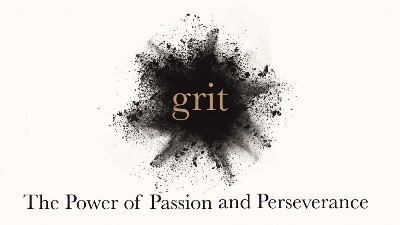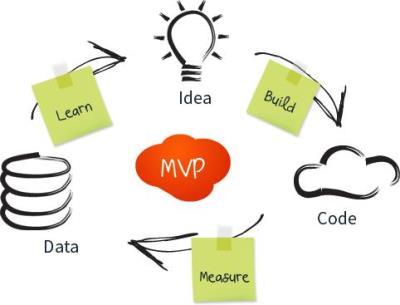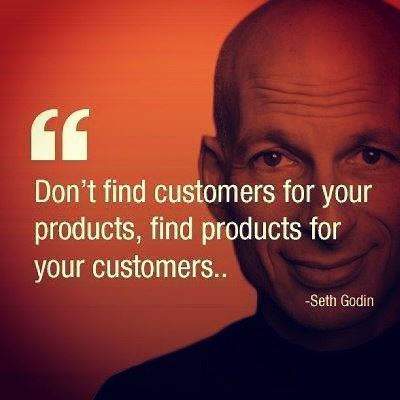Jeremie Averous's Blog, page 50
December 13, 2018
How Entrepreneurs Should Care About Their Contributors
Now that we have clarified what should be the objective mix of an entrepreneur, I would like to focus on one objective that I believe is too often forgotten: providing opportunities and livelihood to employees and other contributors involved.
 It is amazing how this objective is so often forgotten when it is central to the creation of a healthy organization. Only by having contributors involved, committed and excited by the intent of the organization can it deliver exceptional service or products to clients.
It is amazing how this objective is so often forgotten when it is central to the creation of a healthy organization. Only by having contributors involved, committed and excited by the intent of the organization can it deliver exceptional service or products to clients.
And actually there are some situations where I find that this objective can be an essential guiding objective, in particular when the boat rocks and the economic situation of the company is not that great, or when there is a question about its future for example when shareholders don’t agree. My guiding principle is that people should not suffer from the inadequacy of shareholders or directors. They should be considered in the equation.
And while I know about being realistic when there is definitely a need to downsize because the economic equation does not work, this can be done as humanly possible.
Some fellow entrepreneurs might find that position too mellow but I truly believe that on the long term it is the only sustainable position, because the world is small and reputation is quickly earned one way or the other.

December 11, 2018
What Objectives’ Mix Should Entrepreneurs Have?
Following up from our previous post ‘How The Definition of Entrepreneurship and Start-Up Can be Confusing‘, now that we have clarified that entrepreneurship is not only for licorne-type exponential growth startups, the next issue is what is the objective of creating a company, and more specifically, what the objectives of the founders are.
 Businessman is sailing on paper boat in ocean. EPS 10 file
Businessman is sailing on paper boat in ocean. EPS 10 fileObjectives can roughly be a mix of the following:
working on something the founder is passionate about,
provide a solution that is missing on the market, creating value for customers or more generally for stakeholders, putting one’s mark on the world through the leverage of an organization,
providing opportunities and livelihood to employees and other contributors involved,
making money.
The weight mix of these objectives can vary, but generally there is a definite mix, and my view is that all of them need to be part of the mix.
It is important to have all aspects covered because:
passion is the only way the hard work will be provided on the long run
putting one’s mark on the world is about recognition and satisfaction
providing opportunities to employees and contributors is essential to have their full contribution and as a responsible business owner
making money is part of the motivation and just compensation for the value created, and provides with opportunities for creating more businesses and activities.
As a note, those founders that create companies only with the objective of making money exist, but their companies are generally not exciting when not quickly involved in inappropriate accounting issues. Making money can be one respectable objective, through the leverage provided by an organization, but the main objectives should be different.

December 8, 2018
How The Definition of Entrepreneurship and Start-Up Can be Confusing
I am fascinated by the fact that the concept of entrepreneur and start-up is not understood identically by all, and how this leads to damaging confusion. According to Wikipedia, “Entrepreneurship is the process of designing, launching and running a new business“. Any kind of business is understood here. However, most of the literature on the subject of entrepreneurship and startups has definitely a stricter sense: the business must be of the exponential potential growth nature.
 Hence in the world of start-ups, business-angels and other venture capitalists, only businesses that have this exponential potential will be considered, because those are the ones that can pay back the initial investment. But most businesses that entrepreneurs create on a day-to-day basis are not of this kind: they are rather possibly niche, or subject to linear growth only.
Hence in the world of start-ups, business-angels and other venture capitalists, only businesses that have this exponential potential will be considered, because those are the ones that can pay back the initial investment. But most businesses that entrepreneurs create on a day-to-day basis are not of this kind: they are rather possibly niche, or subject to linear growth only.
Business angels and Venture Capitalists look down at those other entrepreneurs thinking that they are not true entrepreneurs. And when I seek advice about how to build a business, most of what’s available in terms of literature is only applicable to exponential-growth start-ups: it revolves around the issue of scaling, of financing while not making any profit, etc.
On the contrary, I believe that it is perfectly respectable to create a business that intends to put its dent on the universe and be highly influential while remaining relatively small. And it is quite as hard. And it is not because the business does not grow exponentially that it is a failure. Of course this business can’t then be financed by the same markets and they should not give the hope of unrealistic returns to attract the relatively easy money available for exponential startups. But still it make make its mark and provide a sustainable influence in its surroundings.
Why should non-exponential businesses and their entrepreneurs be neglected and despised? At the end they make the most of the economic activity.

December 6, 2018
How Grit Is An Essential Ingredient for Success
Angela Duckworth’s book ‘Grit: The Power of Passion and Perseverance‘ describes how grit is an essential ingredient for success.
 “Many of the people I talked to could also recount tales of rising stars who, to everyone’s surprise, dropped out or lost interest before they could realize their potential. Apparently, it was critically important— and not at all easy— to keep going after failure: “Some people are great when things are going well, but they fall apart when things aren’t.””
“Many of the people I talked to could also recount tales of rising stars who, to everyone’s surprise, dropped out or lost interest before they could realize their potential. Apparently, it was critically important— and not at all easy— to keep going after failure: “Some people are great when things are going well, but they fall apart when things aren’t.””
I increasingly observe that what makes a difference is not so much how we respond when successful, but rather how we respond under failure. Do we show determination and flexibility, or do we just become disheartened and stop making efforts?
Responding, rather than reacting, when we face failure, and making sure we learn our lessons and bounce back – that’s probably an essential element that distinguishes successful from less successful people. How do you fare under failure?

December 4, 2018
How Traditional Decision-Making Tools Are Not Fit for the Collaborative Age
In his excellent book (in French) ‘Bienvenue en incertitude!: Principes d’action pour un monde de surprises‘ (Welcome in uncertainty: principles of action in a world full of surprises), Philippe Silberzahn explains that the decision tools that we are using have note changed since the 1970s while the world has become radically uncertain.
 “Predictions become inevitably victim, one day or the other, of an unprecedented event that makes them obsolete. However the decision-making tools we use have not changed. They are based on a predictive paradigm. They date back to the 1970s for most of them and are anchored in the industrial revolution civilization born 150 years ago“. And for sure, most of the decision-making tools we use are based on a linear evolution assumption. And the invention of spreadsheets have worsened the situation, as it is so easy to compute extrapolations over quarters and years!
“Predictions become inevitably victim, one day or the other, of an unprecedented event that makes them obsolete. However the decision-making tools we use have not changed. They are based on a predictive paradigm. They date back to the 1970s for most of them and are anchored in the industrial revolution civilization born 150 years ago“. And for sure, most of the decision-making tools we use are based on a linear evolution assumption. And the invention of spreadsheets have worsened the situation, as it is so easy to compute extrapolations over quarters and years!
Take the typical business plan for example: how many of them consider really discontinuous events and events that change paradigms? In a world of complexity we really need to question what decision-making tools we use on a daily basis.

December 1, 2018
How Having a Real Lunch Break Is Important
Following up from the previous post ‘How Breaks Are Essential for Personal Productivity‘, what about the lunch break? How important is it for productivity? Here again Daniel Pink’s book ‘When: The Scientific Secrets of Perfect Timing‘ comes to the rescue.
 When I travel to the UK or the US I am always amazed how people take their lunch snack at their desk, almost not even standing up. Thus the lunch time is kept to a minimum and they can leave work earlier. In France and many other countries, a true lunch break is an essential part of the day and it is important to go somewhere out of the office to have a real meal.
When I travel to the UK or the US I am always amazed how people take their lunch snack at their desk, almost not even standing up. Thus the lunch time is kept to a minimum and they can leave work earlier. In France and many other countries, a true lunch break is an essential part of the day and it is important to go somewhere out of the office to have a real meal.
According to Daniel Pink, having a good lunch break is essential for overall effectiveness. “Not just any lunch will do, however. The most powerful lunch breaks have two key ingredients — autonomy and detachment.” Therefore, it is important to be able to disconnect from work sufficiently.
Taking the time to have a real lunch break is thus confirmed as a good practice; this has consequences on employers’ policies as well: since a proper lunch break is correlated with improved effectiveness, why hesitate?

November 29, 2018
How Breaks Are Essential for Personal Productivity
There seems to be an increasing body of research showing that breaks are essential for personal productivity and performance. A good overview is presented in the book by Daniel Pink ‘When: The Scientific Secrets of Perfect Timing‘.
 For example, it seems that “frequent short breaks are more effective than occasional ones . 18 DeskTime , a company that makes productivity – tracking software , says that “ what the most productive 10 % of our users have in common is their ability to take effective breaks””.
For example, it seems that “frequent short breaks are more effective than occasional ones . 18 DeskTime , a company that makes productivity – tracking software , says that “ what the most productive 10 % of our users have in common is their ability to take effective breaks””.
Also, “When […] students had a twenty – to thirty – minute break “ to eat , play , and chat ” before a test , their scores did not decline . In fact , they increased . As the researchers note , “ A break causes an improvement that is larger than the hourly study“.
Therefore, taking good breaks periodically is good for personal productivity – with the condition that those breaks really involve thinking about something else. When do you start?

November 27, 2018
How Amazon Bets on a Future Speech-Driven AI
As exposed in this interesting Bloomberg article ‘Making Sense of Amazon’s Alexa Spaghetti Strategy‘, it seems that Amazon has decided that the future of home-based AI will be driven by speech rather than other interfaces – and it is driving hard suppliers to adapt their hardware accordingly.
 Although speech is the most natural communication channel, I am still quite reluctant. First, I am not yet ready to have at home a device which function is to listen to all that is being said to try to figure out if something has been requested. Also, I believe that speech has a lot of impediments: accents in foreign languages, substantial chances of misunderstanding, etc. On the other hand, it may be quite convenient to give instructions by speaking as long as they can be clearly understood and it avoid having to grab some hardware such as phone or tablet to give instructions.
Although speech is the most natural communication channel, I am still quite reluctant. First, I am not yet ready to have at home a device which function is to listen to all that is being said to try to figure out if something has been requested. Also, I believe that speech has a lot of impediments: accents in foreign languages, substantial chances of misunderstanding, etc. On the other hand, it may be quite convenient to give instructions by speaking as long as they can be clearly understood and it avoid having to grab some hardware such as phone or tablet to give instructions.
In summary, I am not yet ready to give voice instructions to my microwave to cook my spaghettis, but I am interested to see if that’s really the future world we will live in. At least Amazon seems to believe that it is. Interesting times!

November 24, 2018
How the Lean Startup Approach Should Not Be Used In All Instances
In this Quartz post ‘“The Lean Startup” is an unproductive legend‘ the authors denounce the excessive ideological weight of the concept – both for startup founders, investors and educators.
 According to them, “The Lean Startup ideology has sown a lot of confusion in cohort after cohort of my MIT students for a decade. The recipes have all the right sounding words and slogans. They seem to make so much sense, so how could they not work?“. And they quote a number of instances where this approach has not made sense, or where it has been used in situations where it was not applicable (such as the scaling up of a startup), or where people quoted the approach to justify inadequate actions.
According to them, “The Lean Startup ideology has sown a lot of confusion in cohort after cohort of my MIT students for a decade. The recipes have all the right sounding words and slogans. They seem to make so much sense, so how could they not work?“. And they quote a number of instances where this approach has not made sense, or where it has been used in situations where it was not applicable (such as the scaling up of a startup), or where people quoted the approach to justify inadequate actions.
I really believe that the Lean Startup approach is on something. The main message – that it is essential to listen to the customer the earliest possible (on the basis of a Minimum Viable Product) and not spend excessive resources to develop what we believe is the best product – is needed and important.
Of course like any approach it has a domain of application and can’t be applied to all circumstances in life. This is not a reason to throw it in the trash: like any approach, let’s use it within its domain of validity and let’s be wise enough to recognize when it is not applicable.

November 22, 2018
How We Need to Listen to Customers When Developing Products
Seth Godin writes: “You don’t find customers for your products. You find products for your customers“. I would like many more start-up founders and entrepreneurs listen to this and follow this statement.
 Of course there is the myth of Steve Jobs developing products without listening to focus groups, but still he was developing products for the sake of customers, with a huge focus on design and utilization. Too many founders develop a product that they think is genius, only to find out that no-one has any need for it or would see any reason to buy it.
Of course there is the myth of Steve Jobs developing products without listening to focus groups, but still he was developing products for the sake of customers, with a huge focus on design and utilization. Too many founders develop a product that they think is genius, only to find out that no-one has any need for it or would see any reason to buy it.
Listening to customers might bring more incremental change than disruptive change, but on the other hand, it is also essential to develop something useful that brings value to the customer. It’s definitely the way to go, and confront reality the earliest possible.




